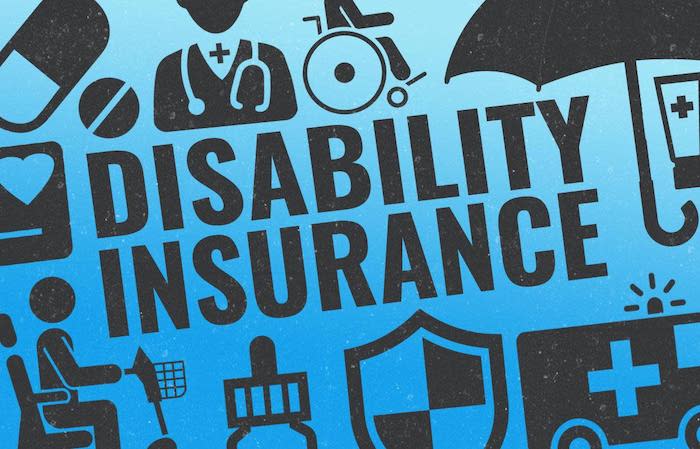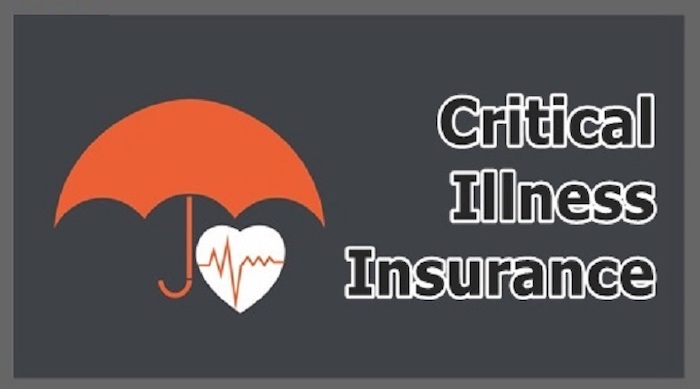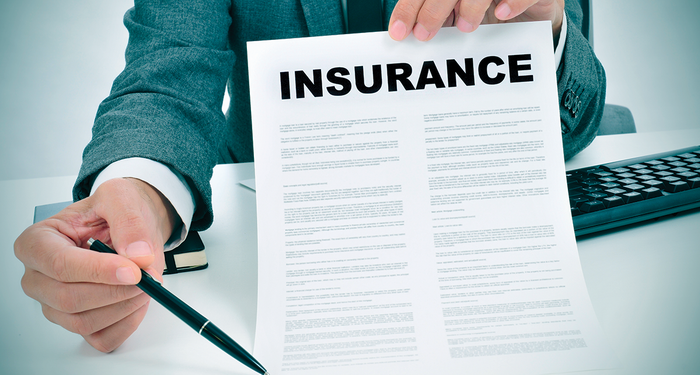Are you looking for the best disability insurance coverage to suit your needs? Finding the right coverage can be daunting, but this guide will help you make an informed decision. We’ll provide an overview of disability insurance, explain the different types of coverage available, and provide tips for choosing the best policy for your situation. With this guide, you’ll be able to find the right disability insurance coverage to protect you and your family in the event of an unexpected illness or injury.
Understanding the Types of Disability Insurance Coverage
Disability insurance coverage is an important protection for individuals who may become unable to work due to an illness or injury. It is designed to provide financial support to those unable to work due to a disability. There are several types of disability insurance coverage available, and it is important to understand the differences between them to choose the best coverage for your needs.
Short-term disability insurance is designed to provide financial support for a limited period, usually up to six months. Employers typically provide this type of coverage and can help to cover lost wages during a period of disability. Short-term disability insurance is usually less expensive than other types of coverage but does not provide long-term protection.
Long-term disability insurance is designed to provide financial support for longer, usually up to two years or more. This type of coverage is typically provided by employers or purchased as an individual policy. Long-term disability insurance can help cover lost wages for longer, but it is usually more expensive than short-term coverage.
Employers typically provide group disability insurance and cover employees. This type of coverage is usually less expensive than individual policies, but it does not provide the same level of coverage. Group disability insurance typically covers a limited number of disabilities and may not provide the same financial support as an individual policy.
An individual purchases individual disability insurance and provides coverage for a specific individual. This type of coverage is usually more expensive than group policies, but it provides the most comprehensive coverage. Individual disability insurance can provide financial support for a longer period and can be tailored to meet the specific needs of the individual.
It is important to understand the different types of disability insurance coverage available to choose the best coverage for your needs. Each type of coverage has its advantages and disadvantages, and it is important to consider all options before deciding. Disability insurance can provide financial support during a disability, and ensuring you have the right coverage for your needs is important.
Assessing Your Financial Needs in the Event of Disability
In the event of disability, assessing your financial needs is essential for ensuring that you have the resources necessary to support yourself and your family. Disability can be a difficult experience, and it is important to ensure you are financially prepared for any changes in your lifestyle.
When assessing your financial needs in the event of disability, it is important to consider your current and future financial needs. You should take into account any existing medical bills, as well as any additional costs that may arise due to your disability. Additionally, you should consider any changes in your income that may occur due to your disability, such as reduced wages or loss of employment.
It is also important to consider potential long-term care needs due to your disability. This could include home care, medical equipment, or other specialized services. You should also consider any potential changes in your lifestyle that may be necessary due to your disability, such as modifications to your home or transportation needs.
Once you have assessed your financial needs, it is important to ensure you can meet them. This could include applying for disability benefits, such as Social Security Disability Insurance (SSDI) or Supplemental Security Income (SSI). Additionally, you may be eligible for other government benefits, such as Medicaid or Medicare.
You may also want to consider setting up a trust fund or other savings account to ensure that you have the resources necessary to cover any additional costs that may arise due to your disability. Additionally, you may want to speak with a financial advisor to discuss any potential investments or other strategies that may benefit your long-term financial security.
Finally, it is important to stay informed about any changes in the laws or regulations that may affect your disability benefits or other financial needs. This could include changes to Social Security or other government programs, as well as changes to insurance policies or other financial services.
Assessing your financial needs in the event of disability is essential for ensuring that you have the resources necessary to support yourself and your family. It is important to consider your current and future financial needs and any potential changes in your lifestyle that may be necessary due to your disability. Additionally, it is important to ensure that you can meet your financial needs, such as applying for disability benefits or setting up a trust fund. Finally, it is important to stay informed about any changes in the laws or regulations that may affect your disability benefits or other financial needs.
Evaluating Your Employer’s Disability Insurance Benefits
Evaluating your employer’s disability insurance benefits is an important step in ensuring that you are adequately covered in the event of an injury or illness. Disability insurance provides financial protection if you cannot work due to a disability, and it is important to understand the coverage and limitations of your policy.
When evaluating your employer’s disability insurance benefits, it is important to consider the type of coverage provided. Some policies provide short-term disability coverage, designed to provide financial assistance for a limited period, usually up to six months. Other policies provide long-term disability coverage, designed to provide financial assistance for a longer period, often up to five years or more. It is important to understand the type of coverage provided by your policy and the length of time it will provide financial assistance.
It is also important to understand the eligibility requirements for your policy. Most policies require that you be employed for a certain period before you are eligible for coverage. Some policies also require that you be actively working at the time of the disability. It is important to understand your policy’s eligibility requirements and any waiting periods that may apply.
It is also important to understand the limitations of your policy. Most policies have a maximum benefit amount, the maximum amount of money that can be paid under the policy. It is important to understand the maximum benefit amount and any other limitations that may apply.
Finally, it is important to understand the claims process for your policy. Most policies require that you submit a claim form to receive benefits, and it is important to understand the process for submitting a claim. It is also important to understand the timeline for receiving benefits and any appeals process that may be available.
Evaluating your employer’s disability insurance benefits is an important step in ensuring that you are adequately covered in the event of an injury or illness. Understanding the type of coverage provided, the eligibility requirements, the limitations, and the claims process is essential to ensure that you are adequately protected.
Comparing Disability and Providers
Comparing disability and providers is important in selecting the right provider for a person with a disability. It is important to compare the services offered by different providers to ensure that the best provider is chosen for the individual’s needs.
When comparing disability and providers, it is important to consider the type of services offered. Some providers may specialize in a certain type of disability, such as physical or mental disabilities, while others may offer various services. It is important to consider the types of services each provides to meet the individual’s needs.
Another factor to consider when comparing disability and providers is the cost of services. Different providers may charge different rates for their services, so it is important to compare the costs of each provider to ensure that the individual is getting the best value for their money. It is also important to consider the quality of services each provider offers. Some providers may offer higher quality services than others, so it is important to compare each service to ensure that the individual gets the best possible care.
Finally, it is important to consider the availability of services each provider offers. Some providers may offer services on a limited basis, while others may offer services on a more regular basis. It is important to compare the availability of services each provider offers to ensure that the individual can access the services they need when needed.
Comparing disability and providers is important in selecting the right provider for a person with a disability. It is important to consider the type of services offered, the cost of services, the quality of services, and the availability of services when comparing disability and providers. By doing so, individuals can ensure they are selecting the best provider for their needs.
Maximizing Your Disability Insurance Coverage with Riders and Add-Ons
Maximizing your disability insurance coverage with riders and add-ons is important to protecting your financial future. Disability insurance is designed to provide you with a steady income if you become disabled and unable to work. However, the basic coverage provided by disability insurance may not be enough to meet your needs. That’s why it’s important to consider riders and add-ons to maximize your coverage.
Riders are additional benefits that you can add to your disability insurance policy. These riders can provide additional coverage for specific situations or disabilities. For example, you may want to add a rider that provides additional coverage for a disability caused by an accident or illness. You may also want to add a rider that provides additional coverage for a disability caused by a pre-existing condition.
Add-ons are additional benefits that you can add to your disability insurance policy. These add-ons can provide additional coverage for specific situations or disabilities. For example, you may want to add an add-on that provides additional coverage for a disability caused by a mental or nervous disorder. You may also want to add an add-on that provides additional coverage for a disability caused by a disability-related medical condition.
When considering riders and add-ons for your disability insurance policy, it’s important to understand the terms and conditions of each rider and add-on. It’s also important to understand the cost of each rider and add-on. Some riders and add-ons may be more expensive than others, so it’s important to weigh the cost of each rider and add-on against the benefits they provide.
Maximizing your disability insurance coverage with riders and add-ons can help ensure you have the coverage you need if you become disabled and unable to work. It’s important to understand the terms and conditions of each rider and add-on and the cost of each rider and add-on so that you can make an informed decision about which riders and add-ons are right for you.
FAQs
Q: What is disability insurance?
A: Disability insurance is a type of insurance that provides financial protection if you become disabled and can no longer work. It pays a percentage of your salary in the event that you are unable to work due to illness or injury.
Q: Why do I need disability insurance?
A: Disability insurance provides income protection in the event that you become disabled and can no longer work. Without disability insurance, you could face financial hardship and be unable to support yourself or your family.
Q: How do I choose the best disability insurance coverage?
A: To choose the best disability insurance coverage, consider factors such as the amount of coverage you need, the length of the coverage period, the cost of the policy, and the policy’s terms and conditions. You should also consider the insurance provider’s reputation and financial stability.
Q: How much disability insurance coverage do I need?
A: The amount of disability insurance coverage you need will depend on your income, your expenses, and your lifestyle. Generally, you should aim to have enough coverage to replace 60-70% of your income.
Q: What is the difference between short-term and long-term disability insurance?
A: Short-term disability insurance provides benefits for a short period of time (typically up to 6 months) while you are unable to work due to an illness or injury. Long-term disability insurance provides benefits for a longer period of time (typically 2 years or more) and may also cover permanent disabilities.
Q: What is the elimination period?
A: The elimination period is the amount of time you must wait before your disability insurance benefits begin. The length of the elimination period will depend on your policy, but it typically ranges from 30 to 90 days.
Q: Can I purchase disability insurance on my own or do I need to get it through my employer?
A: You can purchase disability insurance on your own or through your employer. However, if you purchase it on your own, you will be responsible for paying the premiums.
Q: What factors will affect the cost of my disability insurance policy?
A: The cost of your disability insurance policy will depend on factors such as your age, your health, your occupation, and the amount of coverage you need.
Q: Can I change my disability insurance coverage?
A: Yes, you can change your disability insurance coverage. However, you will need to contact your insurance provider to make any changes to your policy.
Q: What happens if I become disabled and need to make a claim?
A: If you become disabled and need to make a claim, you should contact your insurance provider as soon as possible. You will need to provide proof of your disability and follow the claims process outlined in your policy. If your claim is approved, you will receive benefits to help replace your lost income.




